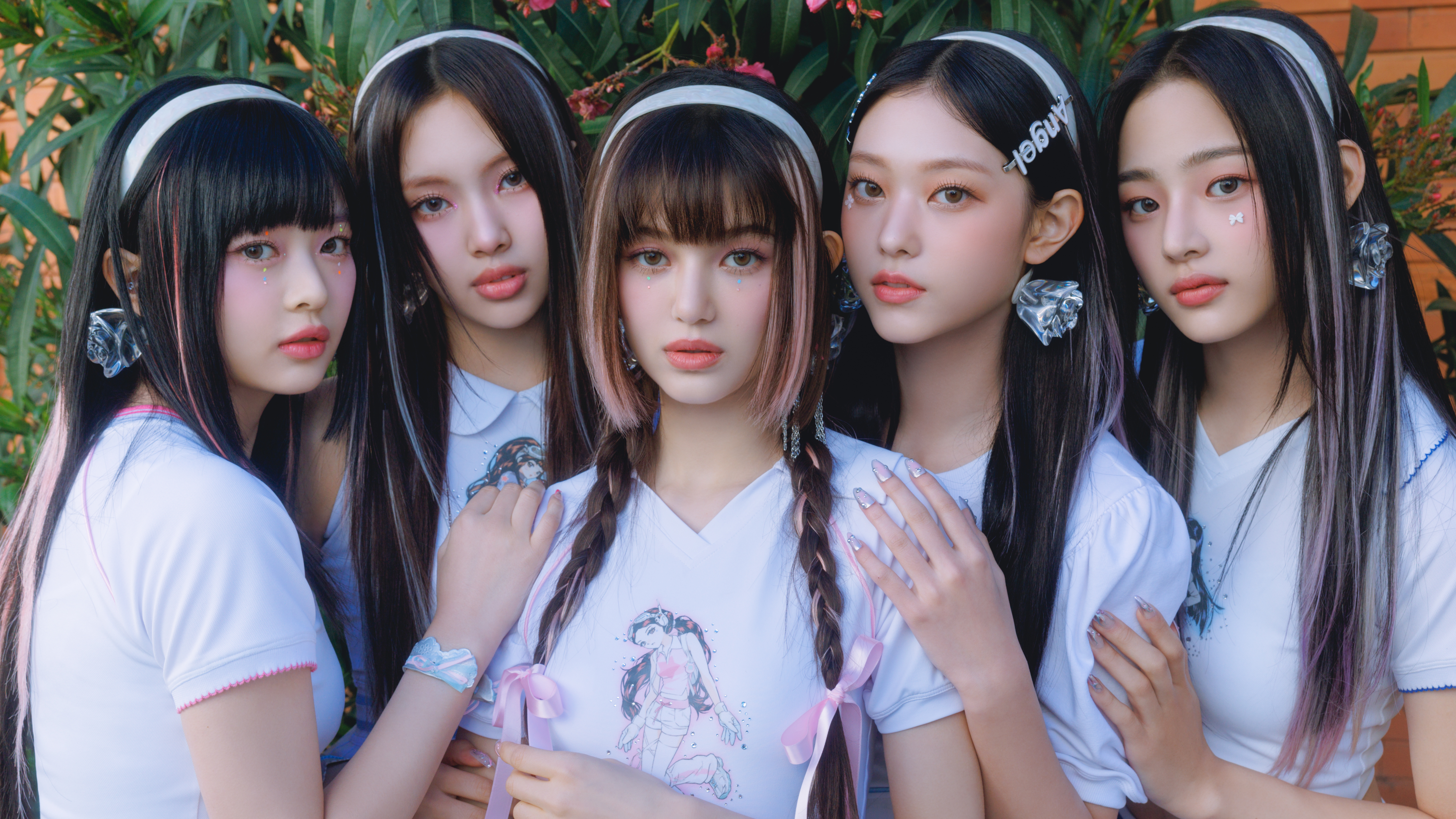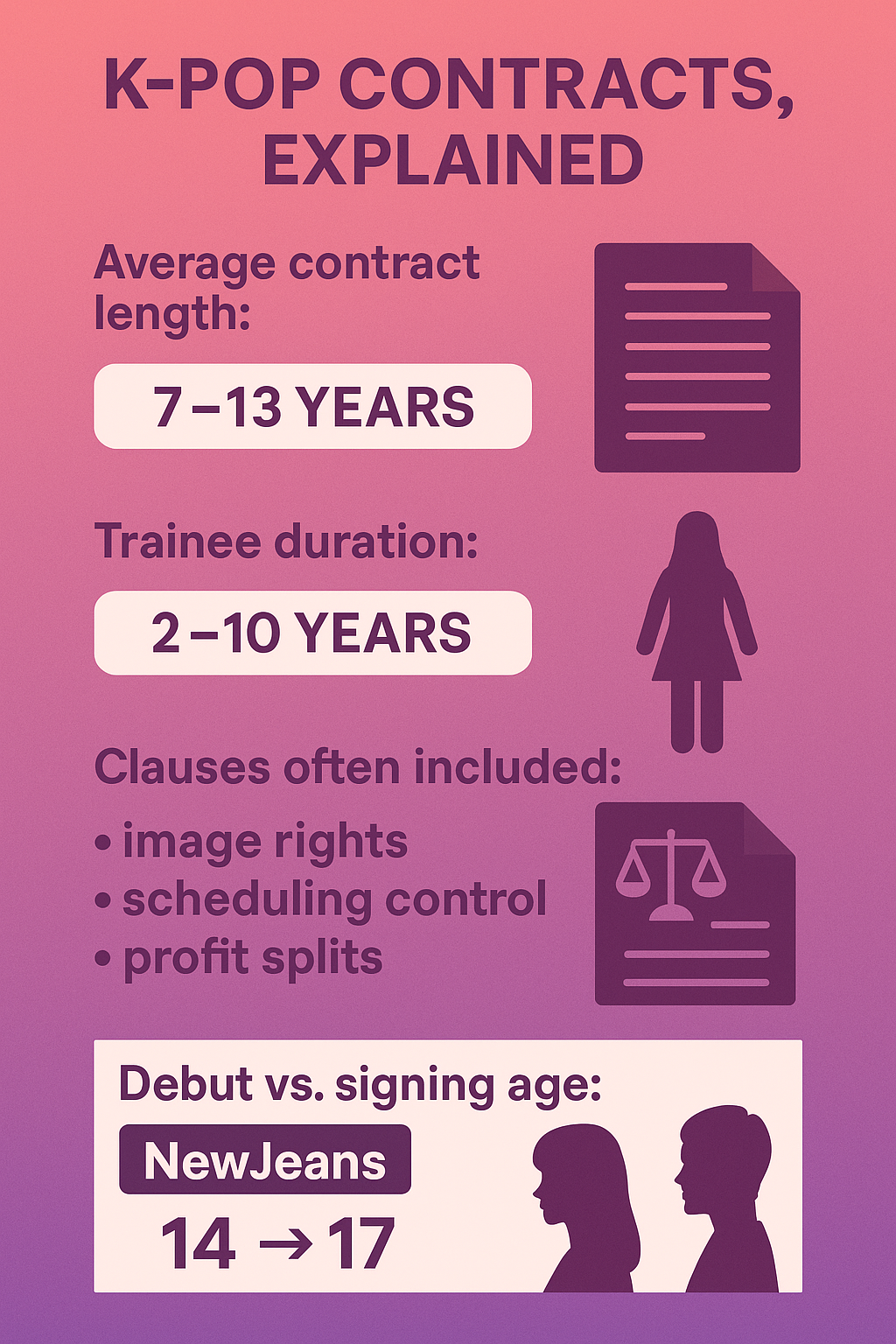NewJeans Legal Battle Unveils The True Cost of K-Pop Stardom


What the NewJeans Controversy Reveals About K-Pop Contracts
In a Seoul courtroom far from the blinding stage lights, five teenage girls find themselves at the center of a battle much more complex than any choreography they've mastered. NewJeans—the K-pop sensation whose retro-infused sound and girl-next-door image captivated global audiences—now stands at the intersection of artistry and industry, facing a legal dispute that tears at the carefully constructed fabric of K-pop's pristine image.
What began as whispers among fan forums has erupted into headline news: NewJeans and their management company ADOR are locked in a standoff that reveals the machinery behind the magic. For their millions of fans worldwide, this a jarring reminder that behind every perfect performance lies a contract, behind every smile lurks an obligation, and behind every idol stands a business structure with expectations that can crush even the brightest stars.
Understanding K-Pop Contracts and the NewJeans Legal Timeline
The K-pop industry is known for producing some of the world’s most polished and dynamic musical acts, but that perfection often begins with long-term contracts signed by teenagers who have yet to fully grasp the weight of what they’re agreeing to. In South Korea, these arrangements are commonly known as “slave contracts,” a term that gained traction in the late 2000s when the Fair Trade Commission (KFTC) began regulating the excessive length and exploitative nature of entertainment contracts.
While reforms have capped initial exclusive contracts at seven years, many agencies continue to exercise near-total control over everything from an artist’s daily schedule to their creative output. Trainees, often recruited as young as 11 or 12, spend 2–10 years in training programs before debuting—time spent largely off the grid of traditional education and personal development. These years are unpaid, and most trainees incur debt to their agencies for expenses like housing, dance instruction, vocal coaching, and styling.
NewJeans debuted under ADOR, a subsidiary label of HYBE Corporation, in July 2022. Their breakout success was immediate—commercially, critically, and culturally. But by early 2024, internal tensions between ADOR’s CEO Min Hee-jin and HYBE began to surface. In April 2025, HYBE publicly accused Min of attempting to seize control of the label, citing a breach of trust. Min fired back with counterclaims that HYBE was undermining ADOR’s artistic autonomy and exploiting NewJeans’ growing brand value for corporate gain.
In May 2025, as legal documents surfaced online, fans noticed the core of the conflict involved the contractual controlover NewJeans' name, brand, and future creative direction. According to Korean media reports, the group members themselves were not initiating the lawsuit, but were caught in the crossfire of a broader power struggle between executives. However, the very fact that their contracts and agency structure allowed for this level of third-party control has sparked a new wave of scrutiny.
The dispute’s visibility has elevated long-standing concerns about how little power idols truly have in determining their own careers—even once they reach superstardom. And while ADOR and HYBE continue legal mediation, fans and analysts alike are calling for industry-wide changes to contract transparency, artist consent, and equitable governance in entertainment companies.
NewJeans and the Industry That Turns Teenagers Into Cultural Products
The NewJeans story follows a familiar pattern in K-pop: exceptionally talented teenagers signed to extensive contracts during formative years. The average training period before debut spans anywhere from 2-10 years—years spent in practice rooms instead of classrooms, pursuing perfection instead of typical adolescent milestones. NewJeans themselves debuted with members as young as 14, their childhood effectively transformed into a commercial enterprise. These artists double down as highly influential cultural products manufactured through a sophisticated system. The legal frameworks that bind them often predate their full understanding of what they're committing to.

This dispute lays bare a fundamental paradox—these young women simultaneously possess extraordinary cultural capital while having limited agency over their careers. Their music videos garner hundreds of millions of views, their fashion choices trigger global trends, yet basic decisions about their schedules, appearances, and artistic direction often remain beyond their control.
How Bunnies Turned a K-Pop Legal Battle Into a Global Campaign
As news of the dispute spread, something remarkable happened: fans worldwide mobilized with the speed and coordination of a military operation. Hashtags trended across continents. Fan translators worked through the night to make legal documents accessible. Infographics explaining Korean entertainment law circulated on Instagram and TikTok.
Bunnies (as NewJeans fans call themselves) are trying to interrogating an entire industry's practices. These digital communities have become unexpected watchdogs for labor rights in an industry traditionally shrouded in secrecy. The power dynamic is shifting. Fans now understand that streaming numbers and merchandise purchases give them leverage. They're using economic pressure to demand better treatment for artists they care about.
What's particularly striking is how this dispute transcends national boundaries. K-pop's global reach means that conversations about Korean labor laws and entertainment industry practices now occur in multiple languages across diverse cultural contexts. American teenagers debate contract specifics while European fan groups organize streaming boycotts until fair treatment is guaranteed.
The Hidden Mental Health Crisis Behind Perfect Performances Demands Attention
Beneath the legal terminology and corporate statements lies a more human story—one about the psychological toll of fame on developing minds. Former idols have increasingly spoken out about the mental health challenges inherent in the K-pop system: grueling schedules, constant public scrutiny, and the pressure to maintain impossible standards of behavior and appearance. NewJeans' members, still navigating their teenage years, must process this high-stakes conflict under the glare of public attention. Every facial expression in public appearances is analyzed for signs of distress. Each social media post becomes evidence in the court of public opinion. We're watching young people endure adult pressures in real-time. The industry has traditionally prioritized appearance of wellness over actual wellbeing and this moment forces a difficult conversation about the sustainability of an industry built on youth and perfectionism. As other entertainment markets gradually implement safeguards for young performers, K-pop's explosive global growth has outpaced its ethical frameworks.
What the NewJeans Dispute Reveals About Fan Responsibility
The NewJeans dispute ultimately represents more a powerful inflection point in how we consume culture and what responsibilities we bear as its audience. Their situation invites us to question whether our enjoyment of their art makes us complicit in systems that may harm the very artists we admire. As the case unfolds, it provides an opportunity to reimagine what ethical entertainment might look like in a globalized world. Can the infectious joy of K-pop performances coexist with sustainable practices for its creators? Can the industry maintain its creative edge while implementing stronger protections for young artists? For NewJeans and countless trainees following in their footsteps, the answers to these questions will determine whether their passion becomes their power or their prison. The spotlight now extends beyond their performances to illuminate the true cost of manufacturing perfection—and whether that price is one we're willing to let the next generation of stars continue to pay.